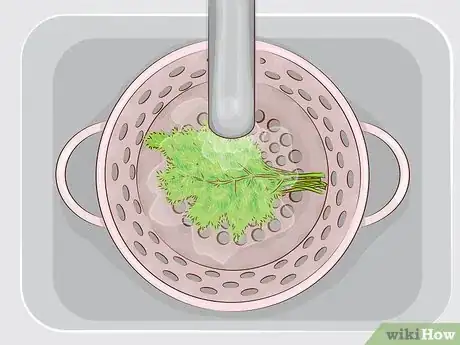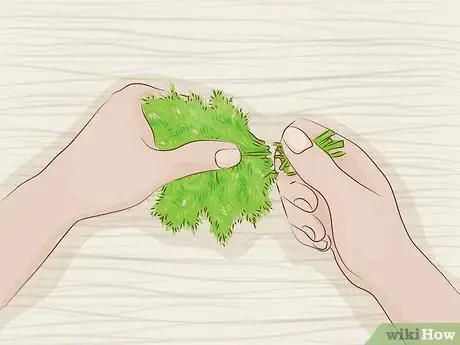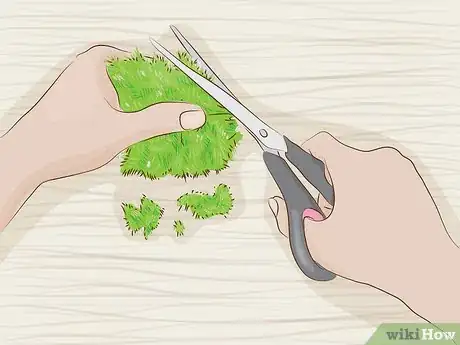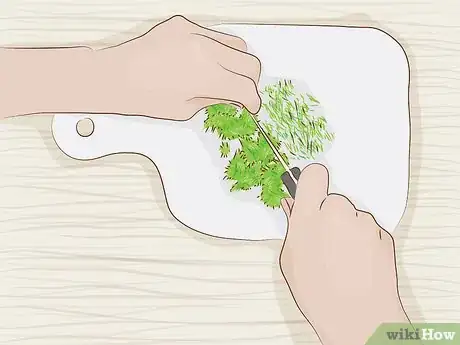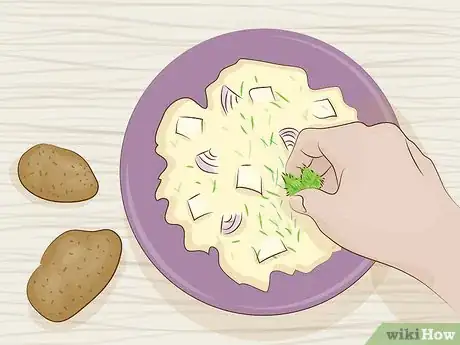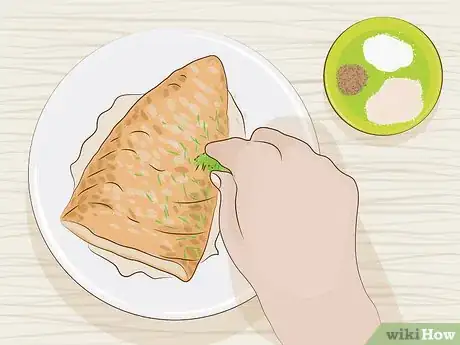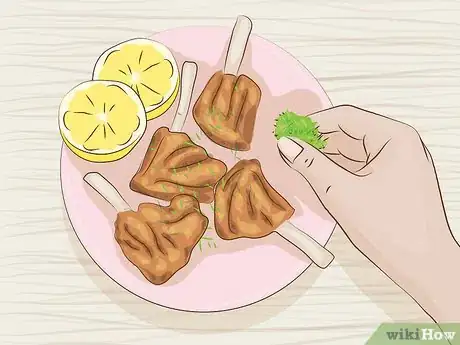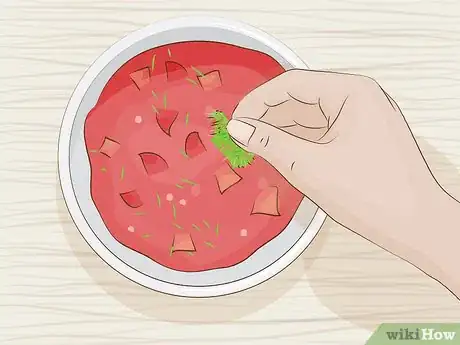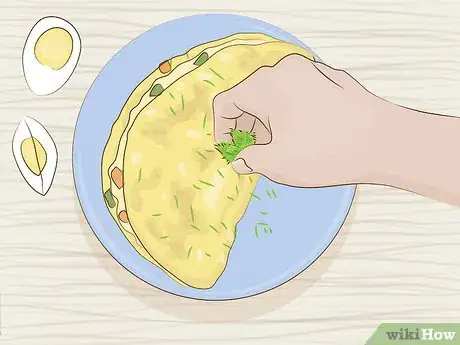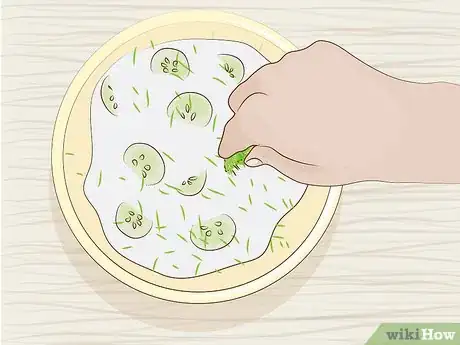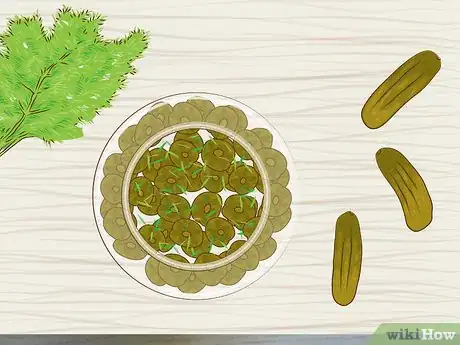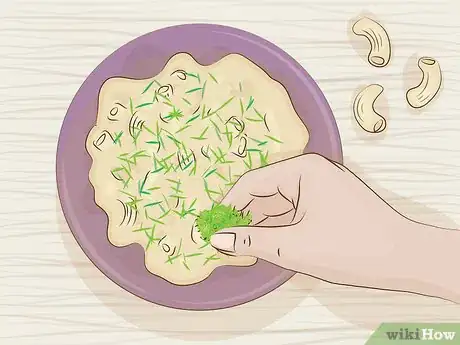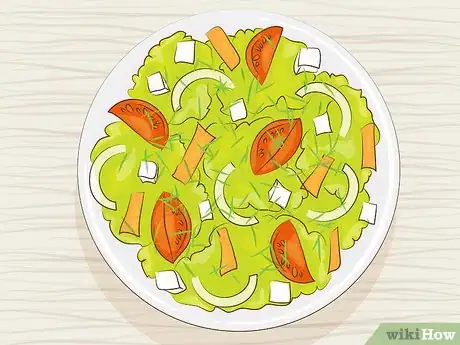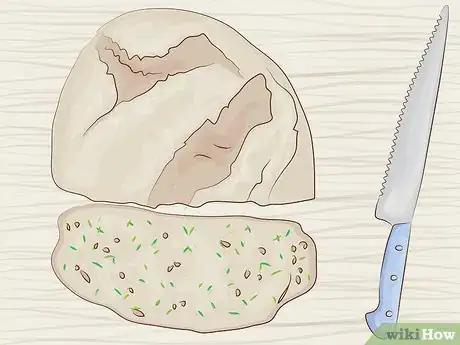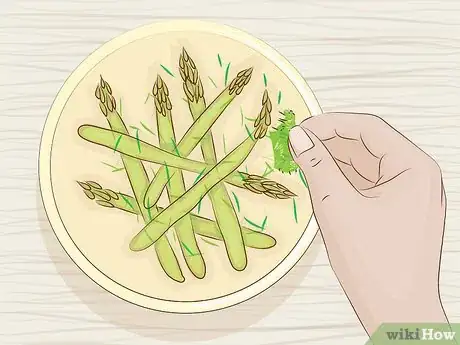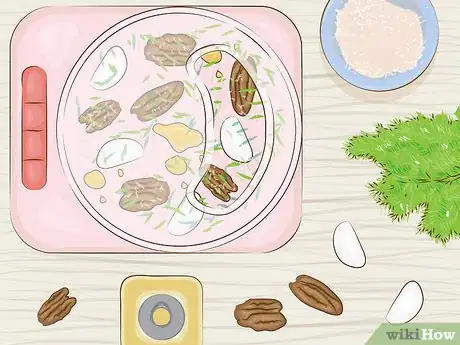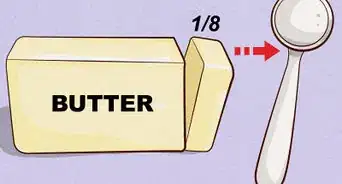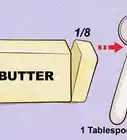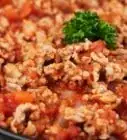This article was co-authored by Jennifer Levasseur. Chef Jennifer Levasseur is a Personal Chef and the Owner of The Happy Cuisiniere based in Breckenridge, Colorado. She has over 12 years of culinary experience and specializes in Mountain and Contemporary Rustic cuisine. Moreover, she can craft dishes and modify menus to accommodate dietary restrictions, such as gluten-free, vegetarian, vegan, pescatarian, and dairy-free diets. In addition to a Bachelor’s degree in Marketing and Management from the University of Houston, Chef Jennifer holds Associate’s degrees in Culinary Arts and Baking & Pastry Arts from Houston Community College.
There are 13 references cited in this article, which can be found at the bottom of the page.
wikiHow marks an article as reader-approved once it receives enough positive feedback. In this case, 100% of readers who voted found the article helpful, earning it our reader-approved status.
This article has been viewed 149,918 times.
Dill is a common herb that’s a member of the same family as celery and parsley. It is often used in cooking and baking, and you can use the fresh leaves, dried leaves (called dill weed), and the dried seeds in foods. Dill is commonly paired with certain foods, such as potatoes and fish, but you can use it in a great number of dishes, including baked goods, soups, sauces, salads, and more.
Steps
Preparing Dill for Eating
-
1Wash the fresh dill. Transfer the dill bunch to a colander or strainer. Run clean water over the herbs to remove dirt and other residue. Transfer the washed dill to a clean towel and pat it dry to remove excess moisture.[1]
-
2Remove the large stems. When the dill is dry, transfer it to a cutting board. With a sharp knife, carefully cut off the larger stems that all the fronds (the feathery leaf-like parts of the herb) are attached to. You can either discard these stems, or save them to add flavor to other dishes.
- Dill stems can be used to stuff and flavor meats and fish, to season stocks and soups, or even to enhance the dill flavor of pickles.
- Like bay leaves, dill stems should be removed from a dish before serving.[2]
Advertisement -
3Cut the fronds into smaller pieces for garnish. Dill makes an excellent garnish for soups, salads, and meats. As a garnish, you may want to use longer sprigs of dill fronds rather than minced dill. With a pair of small, sharp scissors, trim 1-inch (2.5-cm) sprigs from the fronds to use for garnishing dishes.[3]
- The leafy sprigs make much better garnish than the stems, so remove any stems from the garnish and add them to the dill that you'll be mincing.
-
4Mince dill for cooking. Minced fresh dill is ideal for cooking, baking, making sauces, and even eating raw — since it doesn't really require cooking. Transfer the remaining dill, including the small stems and fronds, to a cutting board. Use a sharp knife to mince the dill into very small pieces.[4]
Pairing Dill with Specific Foods
-
1Spruce up any kind of potato dish. Dill is very commonly paired with potatoes, and you can use dill with any variety of potato and in any potato-based dish. For a mild dill flavor, use about ¼ cup (6.25 g) of dill per 2.5 pounds (907 g) of potatoes.[5] Some of the most common ways to pair dill and potatoes include:
- Mix it in with a creamy potato salad
- Sprinkle it on French fries or potato wedges
- Cook it with roasted potatoes
-
2Give fish an extra fresh punch. Fish is another food that’s often served with dill (and lemon), and salmon in particular. Drizzle fresh lemon juice over the salmon and bake it in a 350 F (177 C) oven for about 25 minutes. When the salmon is flaky and pink, remove it from the oven. Before serving, season the salmon with:[6]
- ¼ teaspoon (0.75 g) garlic powder
- Salt and pepper, to taste
- 1 tablespoon (1.6 g) fresh minced dill
-
3Finish lamb with lemon and dill. Lamb, dill, and lemon is another classic food combination, and there's something very delicious about savory meats garnished with mild herbs like dill. Grill, roast, bake, or barbecue the lamb, and before serving, garnish each portion with 1½ tablespoons (2.3 g) of fresh dill and a sprinkle of fresh lemon juice.[7]
- Lamb served with dill and lemon can be paired with roasted potatoes.
-
4Use dill to season borscht. Dill is found in most recipes for borscht, which is a sour beet soup that’s popular in Eastern European countries like Russia and Poland. Some recipes may call for parsley instead, but you can always use dill in borscht.
- While dill is commonly used in borscht, you can actually add it to any soup you like, including turkey, cream of mushroom, broccoli, beef and vegetable, tomato, and more.
-
5Bring out the flavor of eggs. There are a variety of egg dishes that are often paired with dill, and just like with potatoes, there's no egg dish that you can't successfully add dill to.[8] Some of the most popular egg and dill combinations include:
- Egg salad
- Omelets
- Quiche
- Scrambled eggs
- Deviled eggs
- Fritata
-
6Pair dill with yogurt and cucumbers. Dill is highly popular as an herb for both yogurt and cucumbers. In fact, the combinations are so popular that tzatziki, a Greek sauce, uses all three. To make your own tzatziki:[9]
- Cut a medium cucumber in half lengthwise and remove the seeds
- Grate the cucumber with a cheese grater
- Sprinkle salt over the cucumber and transfer it to a colander to drain overnight
- Transfer the cucumber to a clean towel and pat it dry
- In a bowl, combine the cucumber, two cloves of minced garlic, 2 tablespoons (30 ml) of olive oil, 2 cups (490 g) of Greek yogurt, and one small bunch of minced fresh dill
- Add a sprinkle of fresh lemon juice and stir to combine all the ingredients
- Serve the tzatziki with pita, bread, vegetables, or meats
Using Dill in Cooking and Baking
-
1Pickle your own dill cucumbers. Dill pickles are possibly one of the most popular ways that people eat dill. Although it’s easy enough to buy pickles in the store, you can also make your own dill pickles at home for an extra special treat. Next time you make a batch, try adding dill seeds, flowers, stems, or fronds to the brine.
- You can add dill to any pickled vegetables, including beets, onions, and asparagus.
-
2Add it to your mac and cheese. Dill and cheese is another great food combination, and you'll often find dill in herbed cheese mixes. Dill also makes an excellent additional to macaroni and cheese, or any other pasta dish. Next time you make a batch of macaroni and cheese or cheese and rice, spruce it up with dill by adding:[10]
- A tablespoon (6.25 g) of fresh dill
- A teaspoon (0.5 g) of dill weed
- Havarti dill cheese as a substitute for the cheese in the recipe
-
3Garnish salads with fresh dill. Because fresh dill has such a mild flavor, it can easily be added raw to salads without being overpowering. You can add minced dill to any salad or dressing, or garnish your favorite salads with small sprigs of fronds. Excellent salad choices for dill include:
- Garden or garden
- Cobb
- Greek
- Bean
- Pasta
- Fruit
-
4Liven up breads and scones. Dill can be added to just about any scone or bread recipe you like, though it’s most popular with cheese scones and cheese bread. To turn your baked goods into dill baked goods, simply add ½ cup (12.5 g) of minced dill to your favorite recipes.[11]
- Instead of using all dill, you can also use ¼ cup (6.25 g) of dill and ¼ cup (6.25 g) of chives.
-
5Spice up your vegetables. Fresh dill is a great way to cook or finish vegetables, and the herb is especially tasty when paired with lemon and vegetables. Ways you can add dill to your veggies include:
- Sprinkle it on roasted asparagus
- Roast potatoes, peppers, carrots, and other vegetables with dill[15]
- Garnish raw, steamed, or stir fried vegetables with sprigs of fronds
-
6Whip up a dill pesto. Pesto is often made with basil, but you can use the same method to make a delicious and fresh dill pesto. Dill pesto is great on sandwiches, in pastas, as a dip, on flatbread, or even tossed with vegetables. To make this spread, pulse in a food processor until smooth:[13]
- 1 cup (25 g) fresh dill
- 1 large clove garlic
- ¼ cup (31 g) parmesan cheese
- ¼ cup (31 g) lightly toasted pecans
- ¼ cup (59 ml) olive oil
Community Q&A
-
QuestionCan I use dill after it has turned brown in my garden?
 Community AnswerDill is best fresh and green, or dried. If it wet while brown, it may be decaying. If dry, it is fall or dehydrated, or simply dead.
Community AnswerDill is best fresh and green, or dried. If it wet while brown, it may be decaying. If dry, it is fall or dehydrated, or simply dead. -
QuestionHow do I dry dill to preserve it?
 Community AnswerThe best way to preserve most herbs is dehydrating them! The amount of time it takes to safely dry them should be addressed in the dehydrator instruction booklet. You can also dry herbs in your oven, but it requires staying close by and watching it closely. Place the herbs on a sheet pan covered with parchment paper and turn the oven to the lowest possible heat setting. You'll want the herbs to be dry enough to crumble when you press on a small piece; just keep a close eye on them to ensure they don't burn!
Community AnswerThe best way to preserve most herbs is dehydrating them! The amount of time it takes to safely dry them should be addressed in the dehydrator instruction booklet. You can also dry herbs in your oven, but it requires staying close by and watching it closely. Place the herbs on a sheet pan covered with parchment paper and turn the oven to the lowest possible heat setting. You'll want the herbs to be dry enough to crumble when you press on a small piece; just keep a close eye on them to ensure they don't burn! -
QuestionCan I eat dill at night?
 Community AnswerThere are some wild claims about the benefits of dill, but I couldn't find anything about it being detrimental to sleep. In fact, one claim says when eaten in small amounts (in a recipe that calls for dill), it can help relax muscles and soothe you to sleep.
Community AnswerThere are some wild claims about the benefits of dill, but I couldn't find anything about it being detrimental to sleep. In fact, one claim says when eaten in small amounts (in a recipe that calls for dill), it can help relax muscles and soothe you to sleep.
References
- ↑ https://www.youtube.com/watch?v=7VssUe0dr04
- ↑ http://www.seriouseats.com/2010/11/spice-hunting-dill-seed-how-to-use.html
- ↑ http://www.gracelinks.org/blog/5400/real-food-right-now-and-how-to-cook-it-dill
- ↑ https://www.leaf.tv/articles/how-to-chop-fresh-dill/
- ↑ http://www.howsweeteats.com/2012/07/sour-cream-onion-oven-fries/
- ↑ http://allrecipes.com/recipe/87279/salmon-with-lemon-and-dill
- ↑ https://www.bbcgoodfood.com/recipes/1522/lamb-with-lemon-and-dill
- ↑ https://food52.com/blog/10707-dill-and-how-to-use-it-from-stem-to-seed
- ↑ http://www.jamieoliver.com/news-and-features/features/how-to-make-tzatziki/
- ↑ http://steamykitchen.com/14735-greek-style-mac-n-cheese.html
- ↑ http://www.myrecipes.com/recipe/cheese-dill-scones
- ↑ www.thekitchn.com/8-recipes-to-use-up-a-bunch-of-dill-200413
- ↑ http://bevcooks.com/2012/08/pork-scallopini-with-dill-pesto-and-chickpeas/
About This Article
To use dill, put a fresh bunch in a colander or strainer, run clean water over it, and pat it dry to remove excess moisture. Next, carefully cut off the stems with a sharp knife. Then, cut the fronds into smaller pieces if you're using the dill for garnish or mince it if you're using it for cooking. Fresh dill pairs wonderfully with any kind of potato dish, fish, lamb, veggies, baked goods, soups, sauces, and salads! For tips on using dill for pickling, read on!
